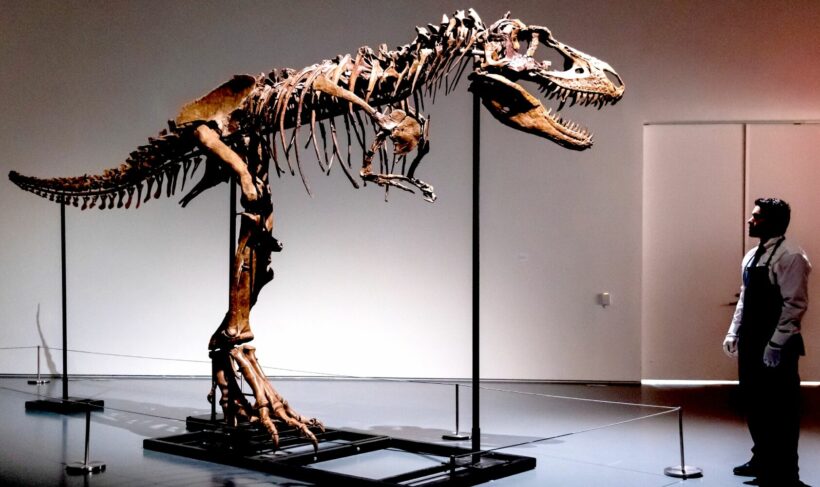US $6.1 million paid for rare Gorgosaurus dinosaur skeleton

Got a couple of million dollars to blow and loved the latest Jurassic Park movie? You just missed your chance to own a rare dinosaur skeleton, as a rare Gorgosaurus fossil just sold at auction for US$6.1 million. The high bid was the fifth most expensive dinosaur sales ever. Sales like this are rare as most countries consider fossils from millions of years ago part of their natural history that belongs in a museum.
The Gorgosaurus is like the kid brother of its more famous close dinosaur relative, the Tyrannosaurus rex, similar, but a bit smaller, weighing up to 2 tons. This ancient skeleton that just sold at a Sotheby’s auction in New York yesterday stands at about three metres tall and 6.7 metres long, much bigger than the most recent species of Thai dinosaur discovered in 2019.
Its T-Rex relatives account for two of the top five most expensive dinosaur fossil sales of all time. A Triceratops sold for US$7.1 million and a velociraptor named Hector sold for US$12.4 million in May, while a T-Rex couple Sue and Stan perhaps showed that women do get paid less than men as they sold for US$8.3 million and US$31.8 million respectively. Stan was recently revealed to have been purchased by the Natural History Museum of Abu Dhabi.
Long before it became the centrepiece of a private dinophile’s collection, the Gorgosaurus roamed a primitive Earth some 77 million years ago. It was unearthed in 2018 in the US state of Montana, in the Judith River Formation, where it was well preserved because of the river’s ecosystem of sediments. All other Gorgosauras skeletons found are in museums, making this possibly the rarest specimen ever sold.
In the US, dinosaur fossils found on federal land are considered public property held in trust by the government, with a law in 2009 requiring they are moved to a research facility like a museum or university. But in the land of individual rights, fossils found on private land are the property of the landowner solely, who can keep or sell them at their discretion, despite protests and begging from the scientific community to preserve the fossils and the site they are extracted from to study.
SOURCE: National News Bureau of Thailand
Latest Thailand News
Follow The Thaiger on Google News:


























